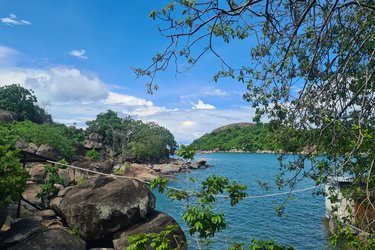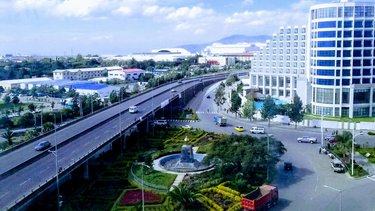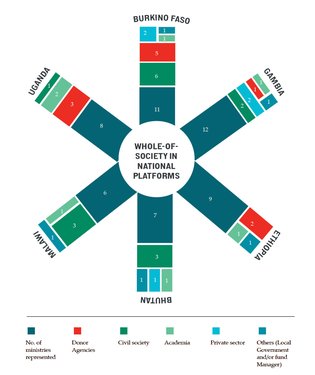

Through one of their five Offers, LDCs have committed to create more inclusive governance of climate decisions, centered on gender transformation and social justice.
Strengthening national climate governance systems means that public authorities in LDCs can absorb, manage and direct climate finance to support local level action, now and into the future.
To oversee their activities, countries using the LIFE-AR approach will use a broad and inclusive consensus-building process to strengthen existing national level systems and governance structures. They will identify and strengthen — where necessary — their in-country financial systems and mechanisms to access global climate finance, as well as their chosen monitoring, evaluation and learning (MEL) systems. They will also identify a preferred way to channel at least 70% of funds to the local level to fund community-prioritised investments in climate action.
LIFE-AR countries have set up their national platform to provide strategic and technical leadership, and support the implementation of LIFE-AR activities through a cross-government and whole of society approach. This includes the private sector, civil society, academia and local level actors.

They have also appointed national focal points (representatives) for MEL and gender equality and social inclusion (GESI) — supported by a national taskforce or technical working group — to drive and coordinate efforts to strengthen existing institutions and systems. The lessons learnt from this process will help to strengthen existing national and local governance bodies for climate action.
LIFE-AR works according to a set of governance principles that ensure equal decision-making and accountability across multiple forms of government and governance, despite power differences between international, national and local implementing partners.
Partners adopt an inclusive whole-of-society approach that includes holistic and long-term planning and ownership of climate policy, investment sourcing and planning.
They work together over time to improve climate governance systems to deliver sustainable climate finance to the local level.
LDCs have committed to create more inclusive governance of climate decisions